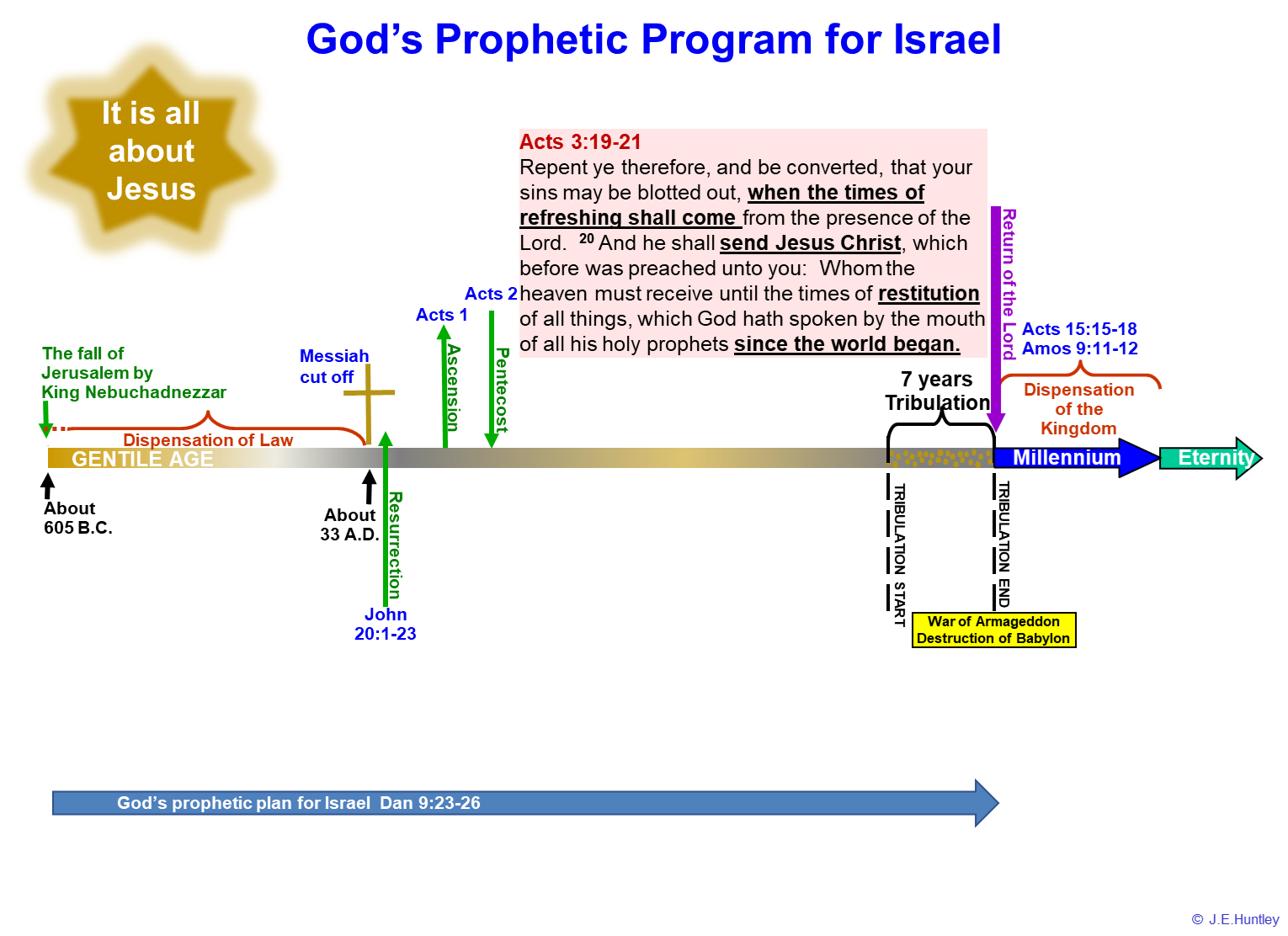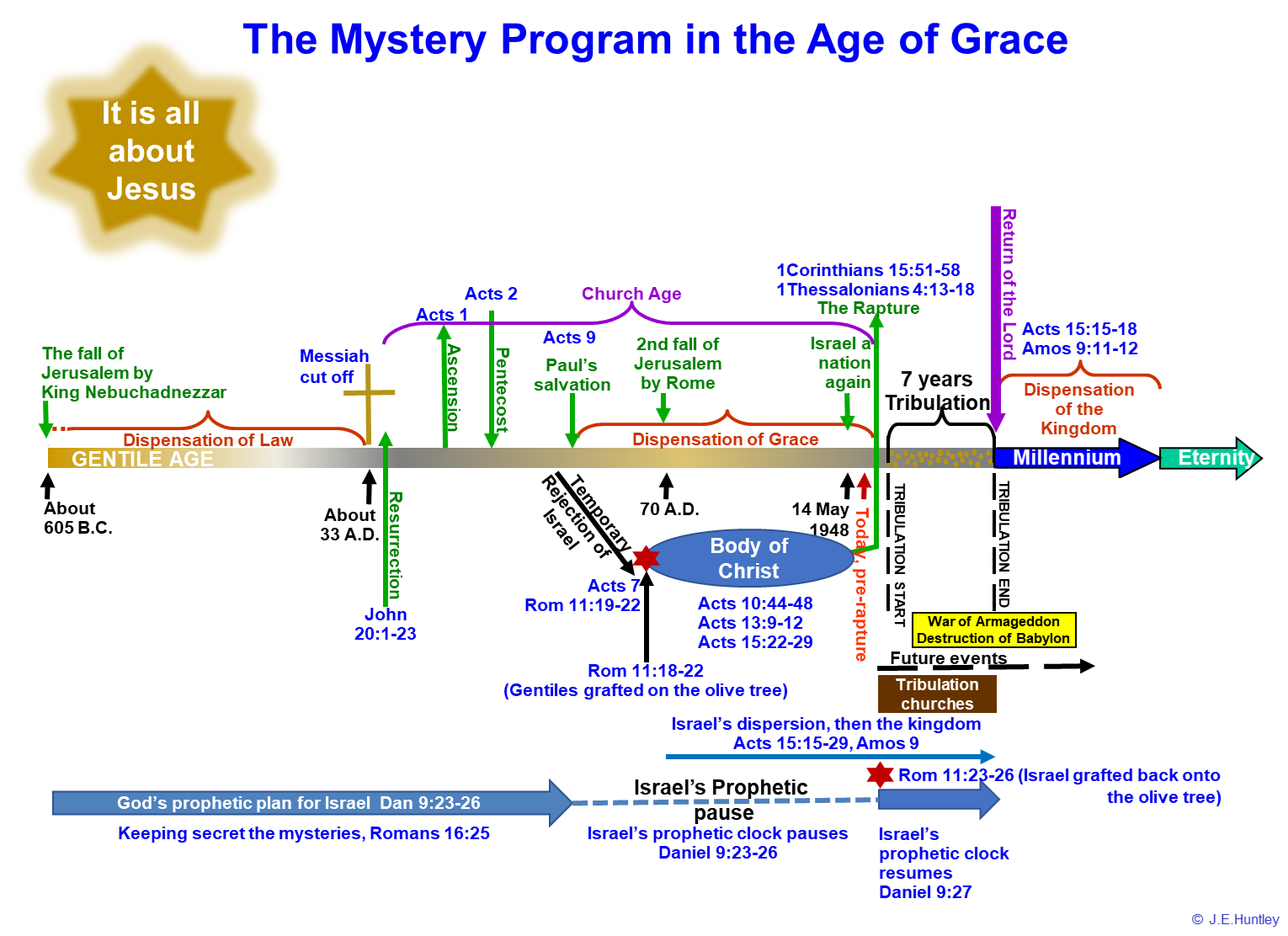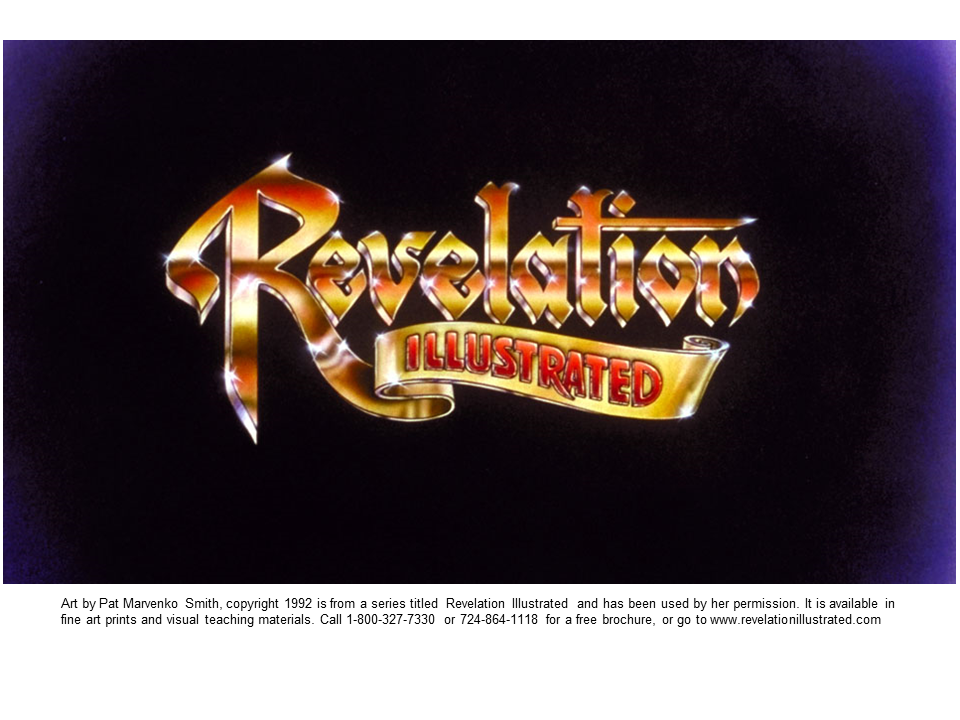Revelation: Introduction
Setting
Revelation, the last book in the Bible, occupies its place because it demonstrates how all the prophecies, promises, and covenants recorded in the previous 65 books are fulfilled. This book, given by God the Father, was delivered to His Son to reveal to His servants the things that must soon come to pass; Jesus Christ then communicated it to His servant John through His angel, Revelation 1:1.
The Book of Revelation was written primarily for believers in Christ Jesus in the prophetic plan for Israel to prepare them for the tribulation they will undergo. The tribulation period, described in Daniel 12:1 to be the worst experience since Israel was ever a nation, will follow after the snatching away (rapture) of the Body of Christ. However, there will be a period of unknown duration between the snatching away of the Body of Christ and the onset of the tribulation, known as the pretribulation. During this pretribulation period, God’s prophetic plan for Israel will restart, and the Jewish churches will be reformed. Thus, while this book is directed toward them to help ensure they are in right standing with the Lord before entering the seven years of tribulation, it is also intended for the Body of Christ today for edification and to foster understanding of God's overall plan for the ages. The following are reasons for this position:
- John, who is Jewish, is the one who penned this book
- John was the apostle, a pillar, to the circumcision, Galatians 2:8-9
- Peter opened the door of the kingdom of God to the Gentiles, Acts 10:34-46, Acts 15:7-11, however,
- Paul is the apostle to the Gentiles, Romans 11:13
- There was a division of effort in ministering and spreading the gospel of Jesus Christ to Israel and the Gentiles, where:
- John would continue to minister to the circumcision (Israel), and
- Paul would continue to minister to the uncircumcision (Gentiles), Galatians 2:7-9
- The Book of Revelation is a prophetic book, Revelation 1:3, Revelation 22:7, 10, 18-19
- It is addressed to the seven synagogues (churches) that were under John's apostleship
- The book is rich in Israel’s history that the Body-of-Christ does not share in
The book of Revelation is also written for the Body-of-Christ. Though the epistles written by Paul, from Romans through Philemon, were addressed directly to the Body-of-Christ, all other portions of scripture are written for our learning so that through patience and comfort of the scriptures we might have hope, Romans 15:4. Paul also showed how the actions of Israel in the past led to God's judgments, 1Corinthians 10:1-5, serving as examples to show that we should not lust after evil things, as they did, 1Corinthians 10:6. Similarly, the letters to the seven churches in the book of Revelation are meant for our learning, understanding and discernment regarding our relationship with the Lord Jesus Christ. Through this book, we can be filled with the knowledge of God's will in all wisdom and spiritual understanding, so that we might walk worthy of the Lord, pleasing Him, being fruitful in every good work, and increasing in the knowledge of God, Colossians 1:9-10.
In the prophetic books in the Old Testament, there was no understanding of Jewish New Testament churches coming into existence. That was first revealed by Jesus to His apostles, Matthew 16:18. During the earthly ministry of Jesus, he prepared His apostles to lead His church after His death, burial, resurrection and ascension to the right hand of the Father. He referred to His apostles as His "little flock," Luke 12:32, and they went on to led the Jewish church after His ascension. But the spiritual leaders of Israel rejected the rebuke of the Holy Spirit three times, as delivered by the Lord's followers who were filled with the Holy Spirit. The first to appear before Israel's religious leaders were Peter and John, Acts 4:1-23, then all 12 apostles, Acts 5:17-40, and finally with the martyrdom of Stephen, Acts 6:11-15 through Acts 7:1-60. Consequently, Israel temporarily fell away, and salvation was given to the Gentiles, Romans 11:11. From that time, the Jewish church faded away as God began His work with the Body of Christ, Romans 11:11-12. The Body-of-Christ will continue on earth until the snatching away (rapture), after which the Jewish church will resume and continue through the tribulation. The following chart illustrates God's prophetic program for Israel.

To reemphasize the previous point, as Israel goes through the tribulation, the Body-of-Christ will be in the presence of God in His throne room. The following graphic depicts the New Testament church from the resurrection of Christ Jesus until the temporary rejection of Israel, and the emergence of the Body-of-Christ, which will last until the time of the snatching away (rapture) of the church. Afterwards, the earthly Jewish churches will emerge almost immediately, and continue through the tribulation. The following chart illustrates God's mystery program for the Body-of-Christ.

At the end of the tribulation, when the Lord returns, there will be surviving believers in Christ Jesus, Jew and Gentile. They will witness the literal, physical and visible return of Christ Jesus as He sits on the throne of David and they will repopulate the earth during the Lord's millennial reign.
The Book of Revelation is the revelation of Jesus Christ to Israel, designed to prepare them for the tribulation by showing them when His kingdom will come, Acts 1:6, and then eternity future. It also clarifies the role, purpose, and eternal destiny of the New Testament church.
The book of Revelation can be divided into:
- Revelation 1 - The introduction to the book of Revelation
- Revelation 2-5, 17a - Pre-tribulation instructions and events in the pre-tribulation Jewish churches
- Revelation 6-19 - The tribulation
- Revelation 6-9 - The first half of the tribulation
- Revelation 10-13 - Mid-tribulation
- Revelation 14-16, 17b-19 - Great tribulation
- Revelation 20 - The millennial reign of the Lord Jesus Christ
- Revelation 21-22 - Eternity future and the conclusion to this book
It is best to have a working knowledge of the entire Bible in order to gain a fuller understanding of the book of Revelation and receive the richest blessings from its study. The purpose of these webpages is to provide a convenient means for the viewer to quickly access relevant passages from Scripture that relate to the portions of Revelation being studied, thereby aiding the reader's understanding.
Revelation 1:3, blessed is he that reads, and they that hear the words of this prophecy, and keep those things which are written therein; for the time is at hand. 
